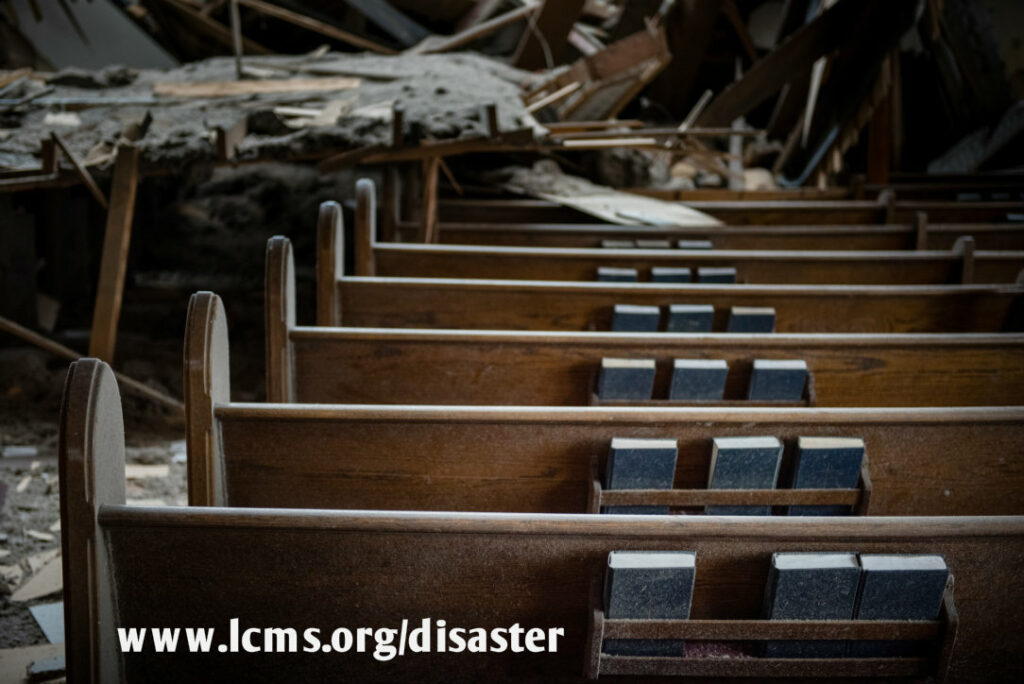
Lutheran Congregational Mercy Work
Over the last 15 years there has been a renaissance of congregational mercy work across the congregations in the LCMS. Much of this resurgence was due to the leadership of President Rev. Matthew C. Harrison who was then the head of LCMS World Relief and Human Care. In 2002, Harrison began to speak and write passionately to pastors and lay leaders of the LCMS on the theology of mercy and how to incorporate a mercy that flows from Lutheran congregations to the needy in their community. Part of this renaissance includes Mercy in Action, the writing, translation, and re-publishing of essays from leading Lutheran theologians from the past and present (see bibliography). In addition, the 2001 Synod convention opened up the deaconess program to both seminaries for women to study deaconess ministry as a vocation. This expansion of the Synod’s deaconess program and increasing number of deaconess church workers has advanced our awareness of mercy work and its influence across the Synod.
At its core, congregational mercy work is based on deeply held convictions that just as Christ has been merciful to sinful humanity, Christians are merciful to others in both physical and spiritual need. This leads to care for the whole person. Congregations are calling and inducting deaconesses, parish nurses, pastoral staff, teachers, lay leaders, Stephen ministers, and others to care for their community’s needs. Lutheran congregations active in mercy look for ways to serve their community’s needs in the name of Christ. As Christ freely gives, congregations mercifully give to all in need.
Over the last decade across The Lutheran Church—Missouri Synod there has been an explosion of churches that offer parish nursing to senior citizens, community health education, food pantries, soup kitchens, advocacy for the unborn and unwed mothers, care and outreach to immigrants, and every year millions of dollars are given to those affected by natural disaster. Each year thousands of Lutheran laity are trained as part of Lutheran Early Response Team (LERT) members, ready to help their communities after natural disasters. Congregation members fund congregational mercy programs, sometimes combined with large grants from their districts and Synod to expand the congregation’s capacity to serve. Because LCMS congregations normally do not receive any government funding, this enables them to serve without having to silence their Christian voice according to government restrictions.[14] When appropriate, Christian church workers and laity on behalf of the local congregation share the Gospel message. They give comfort with Christ’s words, and invite those they serve into the Christian community for continued spiritual care. The Lutheran congregation’s merciful work of service done in the name of Christ is more than “charity” in the modern sense—it is a good Christian work because it is done in faith and directly connected to the Gospel.
Mercy work in and of itself is not the Gospel message of Jesus’ life, death and resurrection for the forgiveness of sins. That is, it is not a means of grace. However, mercy work and service to one’s neighbor is the natural outgrowth of the Gospel message within a believer’s life (Ephesians 2:10). One benefit of congregational mercy work is that it often breaks down barriers that many unchurched people have toward the church and Gospel message. When congregations show up at disaster sites to help victims rebuild their lives, Lutheran pastors and members are welcomed by those who would otherwise never enter a church building. Additionally, through merciful service projects, pastors and lay members are able to build relationships and plant the seeds of the Gospel message.
Our motivation for mercy work is the Gospel, and our primary aim of mercy work seeks to serve the community’s temporal and spiritual needs. The Lutheran congregation holistically serves the needs of both body and soul through the marks of the church. And when people are going through times of crisis, they often also have spiritual needs that only God can fill. In the mist of disaster, victims of tragedy can encounter the office of holy ministry which includes preaching of the Law and Gospel, confession and absolution, Baptism, confirmation, and the distribution of the Lord’s Supper for the ongoing forgiveness of sins. By caring for temporal needs, the Lutheran congregation creates opportunities of care for the universal spiritual needs of forgiveness and peace with God that comes from Christ’s forgiveness.
This is the final part of a three part series from an article published in “Issues in Christian Education.”
To read the full article click here.
References
[14] However, not using government funding greatly reduces that capacity and scale of their mercy work.